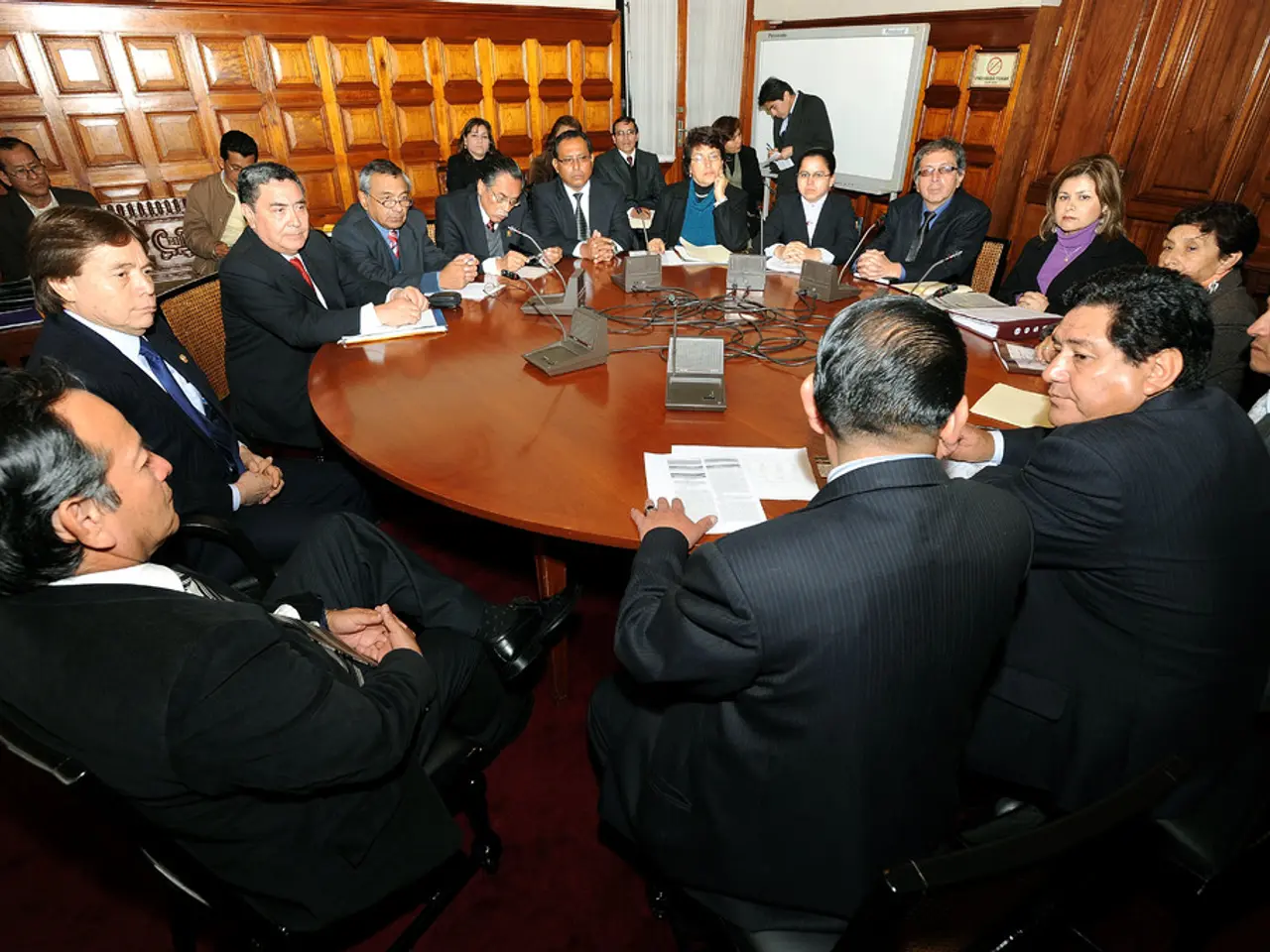Are you identifying as a Christian nationalist?
In a recent survey published by the Pew Research Center, religious nationalism, specifically Christian nationalism, was found to be most popular in Kenya (32%) and the Philippines (21%). This ideology, which seeks to promote Christian values and dominance in political, cultural, and social life, has been a topic of interest in various parts of the world, including North America and Latin America.
The article discussing this topic was published in "Evangelical Focus" under the category "North American perspectives." Christian nationalism, as defined by the article, is a form of religious nationalism that generally holds that the nation was founded as a Christian nation and should continue or return to that status, often opposing secular governance. Proponents of this ideology may view their nation as divinely chosen or superior, believing the government should be explicitly aligned with Christian principles.
In the United States, Christian nationalism is closely linked to the idea that America is a Christian nation uniquely favored by God, and that only Christians are "true Americans." This ideology often overlaps with conservative political movements and sometimes far-right militia groups. Proponents resist secularism, want to legally restrict abortion, and envision a government that openly endorses Christianity or even theocracy.
In Brazil, Christian nationalism also exists but takes different forms, often associated with conservative Christian political and social movements that emphasize Brazil's Christian heritage and seek greater influence of Christian morals and laws in governance. However, the specific dynamics and expressions can differ given Brazil's Catholic majority and growing evangelical population, and its unique political and cultural context.
It's important to note that Christian nationalism does not uniformly reflect the beliefs of all Christians in the U.S., Brazil, or elsewhere. Many Christians support secular government and pluralistic societies, while others identify politically or culturally with Christian nationalism to varying degrees. Surveys and studies indicate that Christian nationalism is more of a subset within broader Christian populations, often more prevalent among conservative, evangelical groups in the U.S.
Last year, a survey claimed that 64% of white U.S. evangelicals are committed to or sympathetic to Christian nationalism. In Brazil, former President Jair Bolsonaro has also been linked to Christian nationalism. However, the author of the article considers Christian nationalism a form of idolatry.
The author, who has written on Christian views of government for a long time and is cited in the Wikipedia article on dominion theology, believes that the use of the term "Christian nationalism" to demonize many Christians who simply want equal participation in the public square is a concern. The author expresses that the survey's questions did not clearly distinguish "Christian nationalists" from other Christians, with the question about God calling Christians to exercise dominion over all areas of American society being the one that most clearly separated Christian nationalists from other Christians.
The concept of Christian nationalism has been associated with the Trump administration's policies. Thomas K. Johnson, in his article written shortly after the 2021 mob attack on the U.S. Capitol, argues that good theology is the best antidote to Christian extremism.
In summary, Christian nationalism is a specific political-religious ideology aiming to fuse Christian identity with national identity and governance. It is especially influential in the U.S. among conservative Christians, but does not fully or accurately represent the diverse beliefs of Christians across countries, including Brazil.
- The article, published in "Evangelical Focus" under the category "North American perspectives," delves into the policymaking and legislative aspects related to Christian nationalism, a form of religious nationalism that holds governments should be explicitly aligned with Christian principles.
- The concept of Christian nationalism has been a contentious issue in politics, particularly in the context of the Trump administration's policies, where it has been associated with efforts to integrate Christian identity and national identity into legislation and governance.







